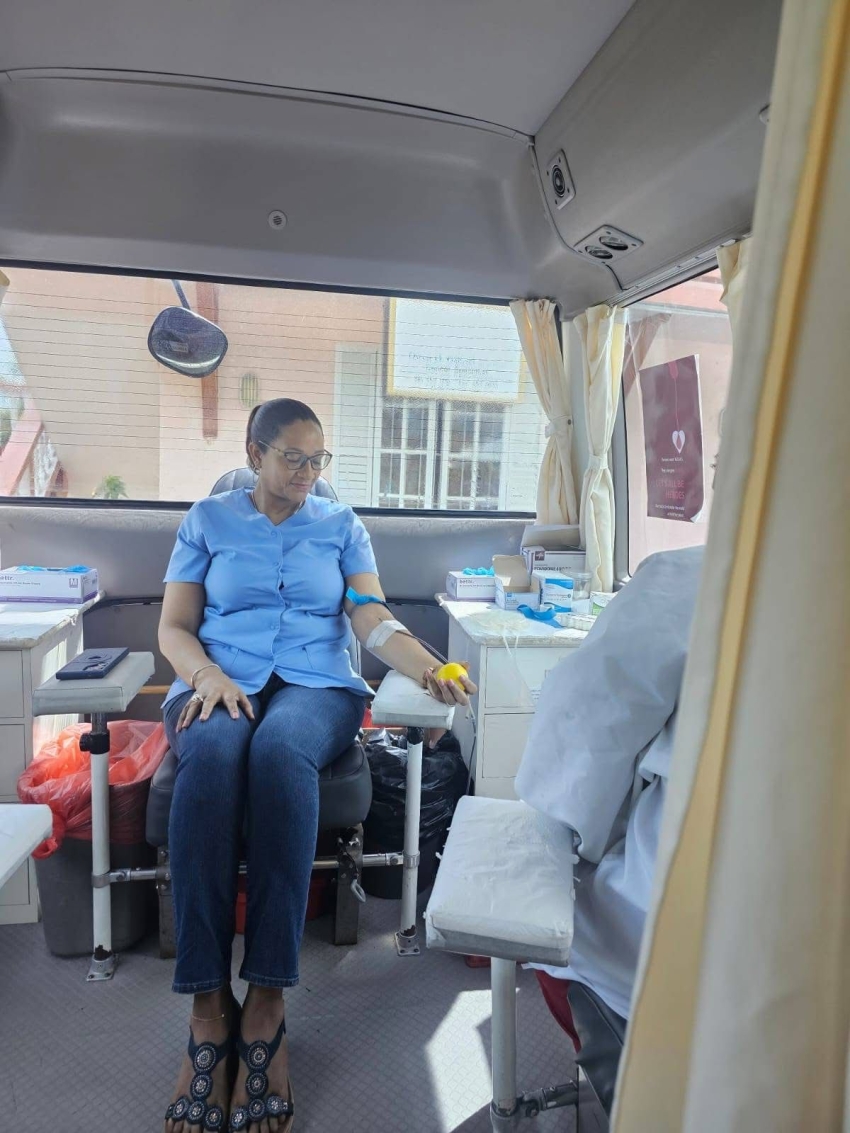The campaign comes at a crucial time, with the Blood Bank calling on the public to participate not just during emergencies, but as a consistent act of civic responsibility. The initiative was met with praise from health officials who underscored the importance of regular donations to support surgical patients, accident victims, expectant mothers, and individuals living with chronic conditions such as sickle cell disease.
Chief Medical Officer Dr. Sharon Belmar-George emphasised the lifesaving impact of blood donation, reminding the public that a single pint can save up to three lives. She encouraged citizens to view blood donation not only as an act of compassion but as a personal responsibility.
“We also want the public to know that when you give blood, it's not only for accident victims and persons with trauma, but persons requiring general surgery, our sickle cell patients, and patients who are mothers and are delivering babies. We never know when we may be the ones who need blood,” she said.
Senior Medical Technologist Karen Louisy echoed this appeal, noting the urgent need to bolster supplies ahead of the busy carnival season when the risk of medical emergencies typically rises. She highlighted the necessity of maintaining a ready and diverse blood supply to respond swiftly to patient needs.
“We never know what emergencies or instances may happen or arise, so we need to make sure that we have all blood types readily available,” she said, urging Saint Lucians to come out in large numbers.
Consultant Surgeon Dr. Dawit Kabiye pointed out that ensuring a sustainable blood supply goes beyond the work of health professionals alone.
“It takes more than the Blood Bank staff or the SLMDA,” he said. “It takes the whole community. It's an area where the ministry needs, you know, a lot of efforts need to be made because it's the donors are the population. Basically, you have to have a structured drive and a continuous drive. So every time you use blood, you go to zero, and you need to be replenishing those things. It requires a lot of investment.”
Dr Kabiye highlighted the importance of establishing structured, ongoing donation efforts that involve every segment of society.


